Previously I reviewed Beelink’s new GTi11 Intel Tiger Lake mini PC running Windows 11, so in this part, I will cover Ubuntu 20.04.
Hardware Recap
The GTi11 is a 168 x 120 x 39mm (6.61 x 4.72 x 1.54 inches) actively cooled mini PC and the review model has an i5-1135G7 Intel Tiger Lake quad-core 8-thread 2.50 GHz Core processor boosting to 4.20 GHz with Intel’s Xe Graphics.
The review model also includes a 500GB M.2 2280 NVMe PCIe Gen 3.0 SSD drive initially with Windows 10 Pro installed but now successfully upgraded to Windows 11 Pro, two sticks of 8GB DDR4 3200 MHz memory, a soldered WiFi 6 (or 802.11ax) Intel AX201 chip and dual 2.5Gb Ethernet ports.
The specifications list four of the USB ports as 3.0 so I retested them on Ubuntu using a Samsung 980 PRO PCle 4.0 NVMe M.2 SSD housed in an ‘USB to M.2 NVMe adapter’ (ORICO M2PAC3-G20 M.2 NVMe SSD Enclosure) and reconfirmed that the front two USB ports are actually 3.1 (USB 3.2 Gen 2×1 i.e. 10 Gbit/s), see for example Bus 02, Port 1, Dev 12:
and that the rear ports are 3.0 (USB 3.2 Gen 1×1 i.e. 5 Gbit/s), see for example Bus 04, Port 3, Dev 5 :
The other point of interest is that the front ‘Type-C’ port is actually a Thunderbolt 4 port which I reconfirmed using the same Gen 4.0 NVMe SSD but housed in my JEYI Thunderbolt 3 M.2 NVMe Enclosure:
and that when ‘used’ as a USB ‘Type-C’ port it also runs at USB 3.1 speed, see Bus 02, Port 1, Dev 11 :
and can support video output through ‘Alternate Mode’:
Review Methodology
When reviewing mini PCs I typically compare their performance against some of the more recently released mini PCs. I now review using Ubuntu 20.04.3 LTS and test with a selection of commonly used Linux benchmarks together with Thomas Kaiser’s ‘sbc-bench’ which is a small set of different CPU performance tests focusing on server performance when run on Ubuntu. I also compile the v5.4 Linux kernel using the default config as a test of performance using a real-world scenario. Finally, I use ‘Phoronix Test Suite’ so that I can benchmark with the same set of tests on Windows for comparison purposes.
Prior to benchmarking, I perform all necessary installations and updates to run the latest version of the OS. I also capture some basic details of the device for the OS.
Beelink GTi11 Ubuntu installation Issues
After shrinking the Windows partition in half and creating a new partition I installed Ubuntu on Beelink GTi11 using an Ubuntu 20.04.3 ISO as dual boot. The first issue was that the Ethernet ports were not recognized on the LiveUSB:
This is likely due to the ports being 2.5Gbps so the installation had to be completed using WiFi and once installed the Ethernet ports worked successfully.
The second issue was there was no audio either from HDMI or when attaching an external speaker or headphones to the 3.5mm audio jack. Even after installation this issue still existed:
The ‘dmesg’ gave a pointer as to how to fix the HDMI audio:
and HDMI audio could be successfully fixed by adding snd_intel_dspcfg.dsp_driver=1 as a GRUB2 kernel boot parameter:
however, this did not resolve the headphone issue.
There are also some BIOS errors being reported in the ‘dmesg’ although the significance of which has not been determined:
Another previously encountered issue where one of the benchmarks requires compiling its code with the -march=native option, occurred again as the compiler packages failed to recognize the ‘tigerlake’ architecture of this CPU using the default 9.3.0 versions and the solution was to install and use the later 10.3.0 versions of ‘gcc’ and ‘g++’:
Finally, the latest pre-release version of Mangohud was required in order to successfully monitor the game Grand Theft Auto V which otherwise would crash when toggling logging on and off.
Ubuntu Performance
After installation and updates, a brief check showed working Wi-Fi, Bluetooth, and Ethernet with the exception of audio as mentioned above.
The key hardware information under Ubuntu 20.04.3 is as follows:
|
1 2 3 4 5 6 7 8 9 10 11 12 13 14 15 16 17 18 19 20 21 22 23 24 25 26 27 28 29 30 31 32 33 34 35 36 37 38 39 40 41 42 43 44 45 46 47 48 49 50 51 52 53 54 55 56 57 58 59 60 61 62 63 64 65 66 67 68 69 70 71 72 73 74 75 76 77 78 79 80 81 82 83 84 85 86 87 88 89 90 91 92 93 94 95 96 97 98 99 100 101 102 103 104 105 106 107 108 109 110 111 112 113 114 115 116 117 118 119 120 121 122 123 124 125 126 127 128 129 130 131 132 133 134 135 136 137 138 139 140 141 142 143 144 145 146 147 148 149 150 151 152 153 154 155 156 157 158 159 160 161 162 163 164 165 166 167 168 169 170 171 172 173 174 175 176 177 178 179 180 181 182 183 184 185 186 187 188 189 190 191 192 193 194 195 196 197 198 199 200 201 202 203 204 205 206 207 208 209 210 211 212 213 214 215 216 217 218 219 220 221 222 223 224 225 226 227 228 229 230 231 232 233 234 235 236 237 238 239 240 241 242 243 244 245 246 247 248 249 250 251 252 253 254 255 256 257 258 259 260 261 262 263 264 265 266 267 268 269 270 271 272 273 274 275 276 277 278 279 280 281 282 283 284 285 286 287 288 |
linuxium@GTi11:~$ lsb_release -a Distributor ID: Ubuntu Description: Ubuntu 20.04.3 LTS Release: 20.04 Codename: focal linuxium@GTi11:~$ linuxium@GTi11:~$ uname -a Linux GTi11 5.11.0-43-generic #47~20.04.2-Ubuntu SMP Mon Dec 13 11:06:56 UTC 2021 x86_64 x86_64 x86_64 GNU/Linux linuxium@GTi11:~$ linuxium@GTi11:~$ inxi -Fzc0 System: Kernel: 5.11.0-43-generic x86_64 bits: 64 Desktop: Gnome 3.36.9 Distro: Ubuntu 20.04.3 LTS (Focal Fossa) Machine: Type: Desktop Mobo: AZW model: GTi serial: <filter> UEFI: American Megatrends LLC. v: TB6005 date: 09/01/2021 CPU: Topology: Quad Core model: 11th Gen Intel Core i5-1135G7 bits: 64 type: MT MCP L2 cache: 8192 KiB Speed: 4200 MHz min/max: 400/4200 MHz Core speeds (MHz): 1: 4199 2: 4200 3: 4200 4: 4198 5: 4194 6: 4200 7: 4026 8: 4200 Graphics: Device-1: Intel driver: i915 v: kernel Display: server: X.Org 1.20.13 driver: i915 resolution: 1920x1080~60Hz OpenGL: renderer: Mesa Intel Xe Graphics (TGL GT2) v: 4.6 Mesa 21.0.3 Audio: Device-1: Intel driver: sof-audio-pci Sound Server: ALSA v: k5.11.0-43-generic Network: Device-1: Intel driver: iwlwifi IF: wlp0s20f3 state: down mac: <filter> Device-2: Intel driver: igc IF: enp175s0 state: down mac: <filter> Device-3: Intel driver: igc IF: enp176s0 state: up speed: 1000 Mbps duplex: full mac: <filter> Drives: Local Storage: total: 465.76 GiB used: 20.57 GiB (4.4%) ID-1: /dev/nvme0n1 vendor: Kingston model: SA2000M8500G size: 465.76 GiB Partition: ID-1: / size: 227.65 GiB used: 20.54 GiB (9.0%) fs: ext4 dev: /dev/nvme0n1p5 Sensors: System Temperatures: cpu: 35.0 C mobo: N/A Fan Speeds (RPM): N/A Info: Processes: 274 Uptime: 15m Memory: 15.38 GiB used: 818.8 MiB (5.2%) Shell: new-review-test inxi: 3.0.38 linuxium@GTi11:~$ linuxium@GTi11:~$ df -h Filesystem Size Used Avail Use% Mounted on udev 7.7G 0 7.7G 0% /dev tmpfs 1.6G 2.0M 1.6G 1% /run /dev/nvme0n1p5 228G 21G 196G 10% / tmpfs 7.7G 0 7.7G 0% /dev/shm tmpfs 5.0M 4.0K 5.0M 1% /run/lock tmpfs 7.7G 0 7.7G 0% /sys/fs/cgroup /dev/loop1 56M 56M 0 100% /snap/core18/2253 /dev/loop2 128K 128K 0 100% /snap/bare/5 /dev/loop0 56M 56M 0 100% /snap/core18/2128 /dev/loop3 219M 219M 0 100% /snap/gnome-3-34-1804/77 /dev/loop4 62M 62M 0 100% /snap/core20/1270 /dev/loop6 248M 248M 0 100% /snap/gnome-3-38-2004/87 /dev/loop5 66M 66M 0 100% /snap/gtk-common-themes/1519 /dev/nvme0n1p1 96M 33M 64M 34% /boot/efi /dev/loop7 51M 51M 0 100% /snap/snap-store/547 /dev/loop8 44M 44M 0 100% /snap/snapd/14295 /dev/loop9 219M 219M 0 100% /snap/gnome-3-34-1804/72 /dev/loop10 66M 66M 0 100% /snap/gtk-common-themes/1515 /dev/loop11 55M 55M 0 100% /snap/snap-store/558 /dev/loop12 33M 33M 0 100% /snap/snapd/12704 tmpfs 1.6G 28K 1.6G 1% /run/user/1000 linuxium@GTi11:~$ linuxium@GTi11:~$ lsblk -a NAME MAJ:MIN RM SIZE RO TYPE MOUNTPOINT loop0 7:0 0 55.4M 1 loop /snap/core18/2128 loop1 7:1 0 55.5M 1 loop /snap/core18/2253 loop2 7:2 0 4K 1 loop /snap/bare/5 loop3 7:3 0 219M 1 loop /snap/gnome-3-34-1804/77 loop4 7:4 0 61.9M 1 loop /snap/core20/1270 loop5 7:5 0 65.2M 1 loop /snap/gtk-common-themes/1519 loop6 7:6 0 247.9M 1 loop /snap/gnome-3-38-2004/87 loop7 7:7 0 51M 1 loop /snap/snap-store/547 loop8 7:8 0 43.3M 1 loop /snap/snapd/14295 loop9 7:9 0 219M 1 loop /snap/gnome-3-34-1804/72 loop10 7:10 0 65.1M 1 loop /snap/gtk-common-themes/1515 loop11 7:11 0 54.2M 1 loop /snap/snap-store/558 loop12 7:12 0 32.3M 1 loop /snap/snapd/12704 loop13 7:13 0 0 loop nvme0n1 259:0 0 465.8G 0 disk ├─nvme0n1p1 259:1 0 100M 0 part /boot/efi ├─nvme0n1p2 259:2 0 128M 0 part ├─nvme0n1p3 259:3 0 232.3G 0 part ├─nvme0n1p4 259:4 0 966M 0 part └─nvme0n1p5 259:5 0 232.3G 0 part / linuxium@GTi11:~$ linuxium@GTi11:~$ sudo lshw -C cpu *-cpu description: CPU product: 11th Gen Intel(R) Core(TM) i5-1135G7 @ 2.40GHz vendor: Intel Corp. physical id: 1d bus info: cpu@0 version: 11th Gen Intel(R) Core(TM) i5-1135G7 @ 2.40GHz serial: To Be Filled By O.E.M. slot: U3E1 size: 3614MHz capacity: 4200MHz width: 64 bits clock: 100MHz capabilities: lm fpu fpu_exception wp vme de pse tsc msr pae mce cx8 apic sep mtrr pge mca cmov pat pse36 clflush dts acpi mmx fxsr sse sse2 ss ht tm pbe syscall nx pdpe1gb rdtscp x86-64 constant_tsc art arch_perfmon pebs bts rep_good nopl xtopology nonstop_tsc cpuid aperfmperf tsc_known_freq pni pclmulqdq dtes64 monitor ds_cpl vmx est tm2 ssse3 sdbg fma cx16 xtpr pdcm pcid sse4_1 sse4_2 x2apic movbe popcnt tsc_deadline_timer aes xsave avx f16c rdrand lahf_lm abm 3dnowprefetch cpuid_fault epb cat_l2 invpcid_single cdp_l2 ssbd ibrs ibpb stibp ibrs_enhanced tpr_shadow vnmi flexpriority ept vpid ept_ad fsgsbase tsc_adjust bmi1 avx2 smep bmi2 erms invpcid rdt_a avx512f avx512dq rdseed adx smap avx512ifma clflushopt clwb intel_pt avx512cd sha_ni avx512bw avx512vl xsaveopt xsavec xgetbv1 xsaves split_lock_detect dtherm ida arat pln pts hwp hwp_notify hwp_act_window hwp_epp hwp_pkg_req avx512vbmi umip pku ospke avx512_vbmi2 gfni vaes vpclmulqdq avx512_vnni avx512_bitalg avx512_vpopcntdq rdpid movdiri movdir64b fsrm avx512_vp2intersect md_clear flush_l1d arch_capabilities cpufreq configuration: cores=4 enabledcores=4 threads=8 linuxium@GTi11:~$ linuxium@GTi11:~$ sudo lshw -C memory *-firmware description: BIOS vendor: American Megatrends International, LLC. physical id: 0 version: TB6005 date: 09/01/2021 size: 64KiB capabilities: pci upgrade shadowing cdboot bootselect socketedrom edd int13floppynec int13floppytoshiba int13floppy360 int13floppy1200 int13floppy720 int13floppy2880 int5printscreen int14serial int17printer int10video acpi usb biosbootspecification uefi *-memory description: System Memory physical id: 6 slot: System board or motherboard size: 16GiB *-bank:0 description: SODIMM DDR4 Synchronous 3200 MHz (0.3 ns) product: CT8G4SFS832A.M8FR vendor: Crucial Technology physical id: 0 serial: XXXXXXXX slot: Controller0-ChannelA-DIMM0 size: 8GiB width: 64 bits clock: 3200MHz (0.3ns) *-bank:1 description: SODIMM DDR4 Synchronous 3200 MHz (0.3 ns) product: CT8G4SFS832A.M8FR vendor: Crucial Technology physical id: 1 serial: XXXXXXXX slot: Controller1-ChannelA-DIMM0 size: 8GiB width: 64 bits clock: 3200MHz (0.3ns) *-cache:0 description: L1 cache physical id: 19 slot: L1 Cache size: 192KiB capacity: 192KiB capabilities: synchronous internal write-back data configuration: level=1 *-cache:1 description: L1 cache physical id: 1a slot: L1 Cache size: 128KiB capacity: 128KiB capabilities: synchronous internal write-back instruction configuration: level=1 *-cache:2 description: L2 cache physical id: 1b slot: L2 Cache size: 5MiB capacity: 5MiB capabilities: synchronous internal write-back unified configuration: level=2 *-cache:3 description: L3 cache physical id: 1c slot: L3 Cache size: 8MiB capacity: 8MiB capabilities: synchronous internal write-back unified configuration: level=3 *-memory UNCLAIMED description: RAM memory product: Intel Corporation vendor: Intel Corporation physical id: 14.2 bus info: pci@0000:00:14.2 version: 20 width: 64 bits clock: 33MHz (30.3ns) capabilities: pm cap_list configuration: latency=0 resources: iomemory:600-5ff iomemory:600-5ff memory:607d1a8000-607d1abfff memory:607d1b5000-607d1b5fff linuxium@GTi11:~$ linuxium@GTi11:~$ free -mh total used free shared buff/cache available Mem: 15Gi 738Mi 13Gi 193Mi 1.1Gi 14Gi Swap: 2.0Gi 0B 2.0Gi linuxium@GTi11:~$ linuxium@GTi11:~$ sudo lshw -C network *-network description: Wireless interface product: Intel Corporation vendor: Intel Corporation physical id: 14.3 bus info: pci@0000:00:14.3 logical name: wlp0s20f3 version: 20 serial: XX:XX:XX:XX:XX:XX width: 64 bits clock: 33MHz capabilities: pm msi pciexpress msix bus_master cap_list ethernet physical wireless configuration: broadcast=yes driver=iwlwifi driverversion=5.11.0-43-generic firmware=59.601f3a66.0 QuZ-a0-hr-b0-59.u latency=0 link=no multicast=yes wireless=IEEE 802.11 resources: iomemory:600-5ff irq:19 memory:607d1a4000-607d1a7fff *-network description: Ethernet interface product: Intel Corporation vendor: Intel Corporation physical id: 0 bus info: pci@0000:af:00.0 logical name: enp175s0 version: 03 serial: XX:XX:XX:XX:XX:XX capacity: 1Gbit/s width: 32 bits clock: 33MHz capabilities: pm msi msix pciexpress bus_master cap_list rom ethernet physical 10bt 10bt-fd 100bt 100bt-fd 1000bt-fd autonegotiation configuration: autonegotiation=on broadcast=yes driver=igc driverversion=5.11.0-43-generic latency=0 link=no multicast=yes port=twisted pair resources: irq:16 memory:88600000-886fffff memory:88700000-88703fff memory:88500000-885fffff *-network description: Ethernet interface product: Intel Corporation vendor: Intel Corporation physical id: 0 bus info: pci@0000:b0:00.0 logical name: enp176s0 version: 03 serial: XX:XX:XX:XX:XX:XX size: 1Gbit/s capacity: 1Gbit/s width: 32 bits clock: 33MHz capabilities: pm msi msix pciexpress bus_master cap_list rom ethernet physical 10bt 10bt-fd 100bt 100bt-fd 1000bt-fd autonegotiation configuration: autonegotiation=on broadcast=yes driver=igc driverversion=5.11.0-43-generic duplex=full ip=XXX.XXX.XXX.XXX latency=0 link=yes multicast=yes port=twisted pair speed=1Gbit/s resources: irq:17 memory:88300000-883fffff memory:88400000-88403fff memory:88200000-882fffff linuxium@GTi11:~$ linuxium@GTi11:~$ sudo lshw -C display *-display description: VGA compatible controller product: Intel Corporation vendor: Intel Corporation physical id: 2 bus info: pci@0000:00:02.0 logical name: /dev/fb0 version: 01 width: 64 bits clock: 33MHz capabilities: pciexpress msi pm vga_controller bus_master cap_list rom fb configuration: depth=32 driver=i915 latency=0 mode=2560x1080 visual=truecolor xres=2560 yres=1080 resources: iomemory:600-5ff iomemory:400-3ff irq:199 memory:607c000000-607cffffff memory:4000000000-400fffffff ioport:3000(size=64) memory:c0000-dffff memory:4010000000-4016ffffff memory:4020000000-40ffffffff linuxium@GTi11:~$ linuxium@GTi11:~$ lsusb Bus 004 Device 001: ID 1d6b:0003 Linux Foundation 3.0 root hub Bus 003 Device 005: ID 1c7a:0577 LighTuning Technology Inc. EgisTec EH577 Bus 003 Device 003: ID 046d:c31c Logitech, Inc. Keyboard K120 Bus 003 Device 004: ID 093a:2510 Pixart Imaging, Inc. Optical Mouse Bus 003 Device 002: ID 05e3:0608 Genesys Logic, Inc. Hub Bus 003 Device 006: ID 8087:0026 Intel Corp. Bus 003 Device 001: ID 1d6b:0002 Linux Foundation 2.0 root hub Bus 002 Device 001: ID 1d6b:0003 Linux Foundation 3.0 root hub Bus 001 Device 001: ID 1d6b:0002 Linux Foundation 2.0 root hub linuxium@GTi11:~$ linuxium@GTi11:~$ lspci -nn 00:00.0 Host bridge [0600]: Intel Corporation Device [8086:9a14] (rev 01) 00:02.0 VGA compatible controller [0300]: Intel Corporation Device [8086:9a49] (rev 01) 00:06.0 PCI bridge [0604]: Intel Corporation Device [8086:9a09] (rev 01) 00:07.0 PCI bridge [0604]: Intel Corporation Device [8086:9a23] (rev 01) 00:07.1 PCI bridge [0604]: Intel Corporation Device [8086:9a25] (rev 01) 00:07.2 PCI bridge [0604]: Intel Corporation Device [8086:9a27] (rev 01) 00:07.3 PCI bridge [0604]: Intel Corporation Device [8086:9a29] (rev 01) 00:0d.0 USB controller [0c03]: Intel Corporation Device [8086:9a13] (rev 01) 00:0d.2 USB controller [0c03]: Intel Corporation Device [8086:9a1b] (rev 01) 00:0d.3 USB controller [0c03]: Intel Corporation Device [8086:9a1d] (rev 01) 00:14.0 USB controller [0c03]: Intel Corporation Device [8086:a0ed] (rev 20) 00:14.2 RAM memory [0500]: Intel Corporation Device [8086:a0ef] (rev 20) 00:14.3 Network controller [0280]: Intel Corporation Device [8086:a0f0] (rev 20) 00:15.0 Serial bus controller [0c80]: Intel Corporation Device [8086:a0e8] (rev 20) 00:15.2 Serial bus controller [0c80]: Intel Corporation Device [8086:a0ea] (rev 20) 00:15.3 Serial bus controller [0c80]: Intel Corporation Device [8086:a0eb] (rev 20) 00:16.0 Communication controller [0780]: Intel Corporation Device [8086:a0e0] (rev 20) 00:17.0 SATA controller [0106]: Intel Corporation Device [8086:a0d3] (rev 20) 00:19.0 Serial bus controller [0c80]: Intel Corporation Device [8086:a0c5] (rev 20) 00:19.1 Serial bus controller [0c80]: Intel Corporation Device [8086:a0c6] (rev 20) 00:1c.0 PCI bridge [0604]: Intel Corporation Device [8086:a0b8] (rev 20) 00:1c.4 PCI bridge [0604]: Intel Corporation Device [8086:a0bc] (rev 20) 00:1c.5 PCI bridge [0604]: Intel Corporation Device [8086:a0bd] (rev 20) 00:1e.0 Communication controller [0780]: Intel Corporation Device [8086:a0a8] (rev 20) 00:1e.3 Serial bus controller [0c80]: Intel Corporation Device [8086:a0ab] (rev 20) 00:1f.0 ISA bridge [0601]: Intel Corporation Device [8086:a082] (rev 20) 00:1f.3 Multimedia audio controller [0401]: Intel Corporation Device [8086:a0c8] (rev 20) 00:1f.4 SMBus [0c05]: Intel Corporation Device [8086:a0a3] (rev 20) 00:1f.5 Serial bus controller [0c80]: Intel Corporation Device [8086:a0a4] (rev 20) 01:00.0 Non-Volatile memory controller [0108]: Kingston Technology Company, Inc. Device [2646:2263] (rev 03) af:00.0 Ethernet controller [0200]: Intel Corporation Device [8086:15f3] (rev 03) b0:00.0 Ethernet controller [0200]: Intel Corporation Device [8086:15f3] (rev 03) linuxium@GTi11:~$ |
I then set the CPU Scaling Governor to ‘performance’ and ran my Linux benchmarks for which the majority of the results are text based but the graphical ones included:
and the latter can be directly compared to when run in Windows using the OpenGL render:
I also ran PassMark PerformanceTest Linux:
which similarly can be directly compared to the results from when it was run on Windows:
For the same set of Phoronix Test Suite tests the results were:
The complete results together with a comparison against other recent mini PCs are:
The results show an improvement in the integrated GPU performance compared with older mini PCs and the capability of which will be explored further below.
Video playback with browsers & Kodi
Video playback was reasonably successful with only Firefox dropping frames for 4K 60 FPS videos however none were dropped when the quality was set to 1440p:
I also attempted playing an 8K 60 FPS video in YouTube in both Firefox and Chrome however neither were as successful as Windows with both stalling and dropping frames continuously:
Finally, I played some videos in Kodi of various formats all of which played without issue until I tried 8K 30 FPS and 8K 60 FPS which switched to using software decoding resulted in frame skipping and stuttering:
Beelink GTi11 Ubuntu Gaming
Similar to my earlier Windows testing I benchmarked three games under Steam (Counter-Strike: Global Offensive, Grand Theft Auto V, and Shadow Of The Tomb Raider) at both 1080p and 720p using default settings in both CS:GO and GTA V and with the graphical preset of ‘lowest’ in the built-in benchmark of SOTTR. The average FPS results were as follows:
Interesting CS:GO on Ubuntu out-performed Windows quite significantly:
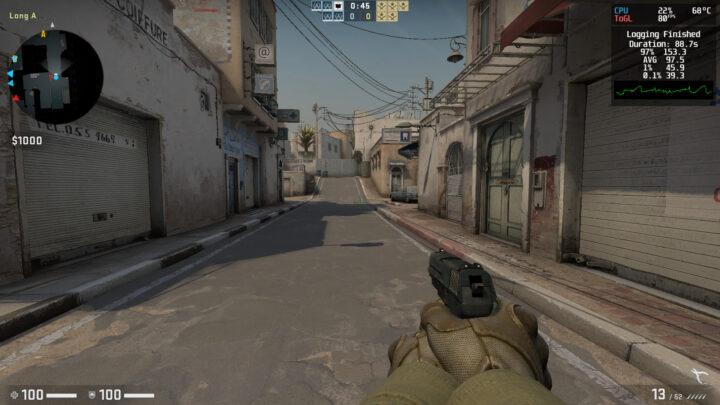
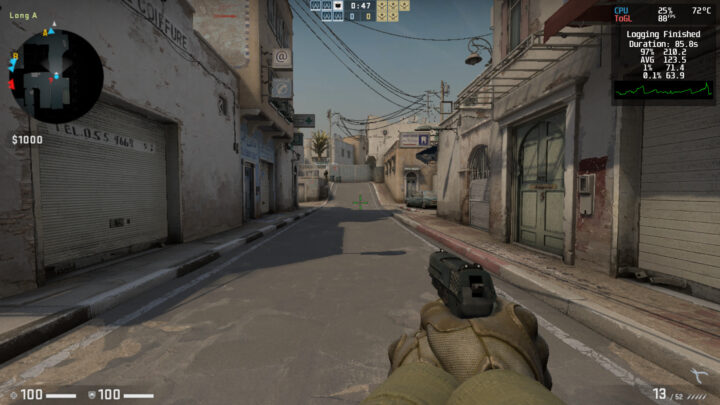
GTA V showed similar performance but SOTTR was slightly worse on Ubuntu.
Thermals
The Beelink GTi11 uses active cooling and running a stress test on Ubuntu saw the CPU temperature rise to a peak of 85°C and then drop to an average around 75°C for the duration of the test:
During the stress test with an ambient room temperature of 26.7°C, the top of the device did not get hot to touch however due to its reflective surface it was difficult to measure the actual temperature other than indicative readings of a maximum being around 42°C. The fan whilst audible was not excessively loud when it ramped up to its maximum even though it measured at times up to 50 dBA on my sound meter next to the device.
If the CPU frequency is monitored during the stress test it can be seen that it started at 3800 MHz then was immediately thermal throttled to an average of 3300 MHz:
Networking
Network connectivity throughput was measured on Ubuntu using ‘iperf’:
Power Consumption
Power consumption was measured as follows:
- Powered off (shutdown) – 0.9 Watts
- BIOS – 19.3 Watts
- GRUB boot menu – 18.7 Watts
- Idle – 11.1 Watts (Windows) and 8.8 Watts (Ubuntu)
- CPU stressed – 42.0 Watts (Windows ‘cinebench’) and 41.3 Watts (Ubuntu ‘stress’)
- Video playback* – 17.9 Watts (Windows Edge 4K 60 FPS) and 43.4 Watts (Ubuntu Chrome 4K 60 FPS)
*The power figures fluctuate notably due to the fan so the value is the average of the median high and median low power readings.
Beelink GTi11 BIOS
Powering up the mini PC and hitting the F7 key results in a boot menu that includes access to the BIOS. The BIOS is unrestricted as can be seen from the following representative pictures:
Two of the most frequently used BIOS options: ‘Wake on Lan’ and ‘Ac Power Lost Policy’, are easily accessed from the ‘Boot’ tab in the BIOS:
Further Observations
Whilst the Beelink GTi11 was impressive under Windows, the GPU performance under Ubuntu is somewhat disappointing in comparison. Coupled with this are the Ubuntu installation and headphone audio issues. Given the device includes a license for Windows 10/11 Pro which also includes WSL2, installing Ubuntu is probably only for the really determined and when absolutely needed.
Thanks again to Beelink for providing the GTi11 for review. It retails on Banggood at around $610 for the current i5/16GB/500GB configuration and $820 for the i7/32GB/500GB configuration.
Continue reading “Beelink GTi 11 modding – PCIe Gen 4.0 M.2 slot, tweaking power limits, and eGPU“.

Ian is interested in mini PCs and helps with reviews of mini PCs running Windows, Ubuntu and other Linux operating systems. You can follow him on Facebook or Twitter.
Support CNX Software! Donate via cryptocurrencies, become a Patron on Patreon, or purchase goods on Amazon or Aliexpress


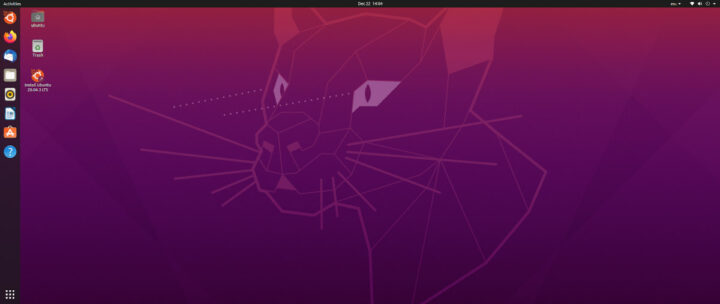
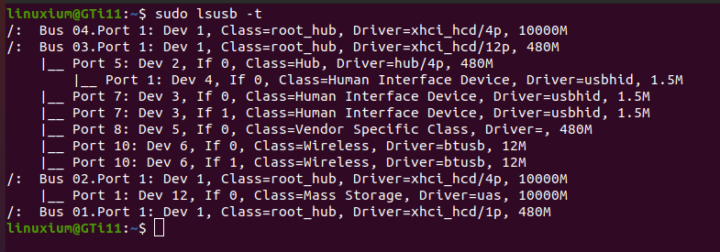
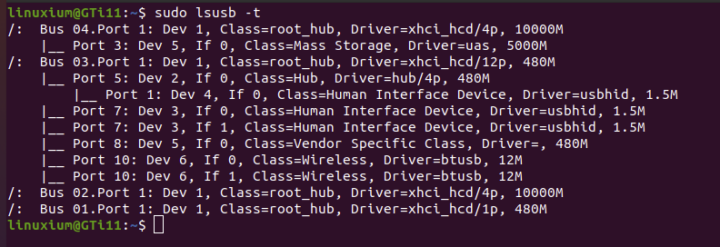
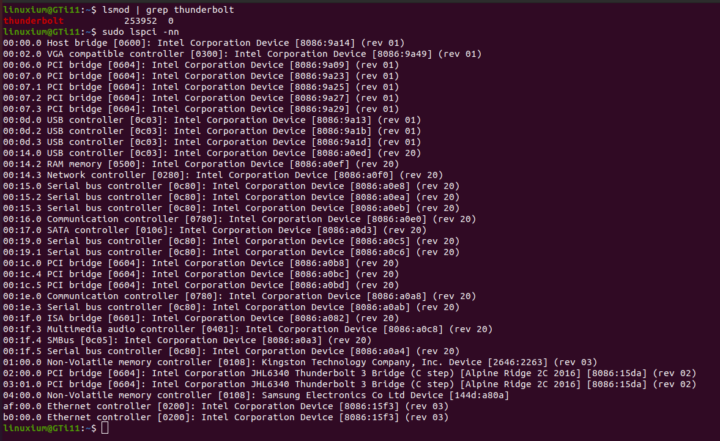
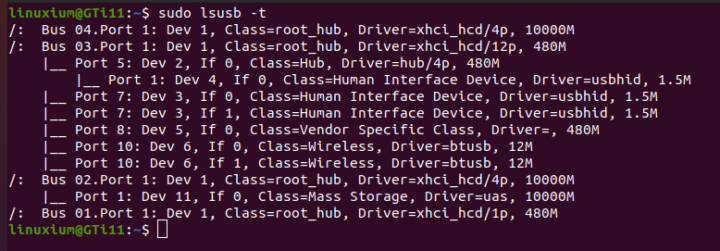

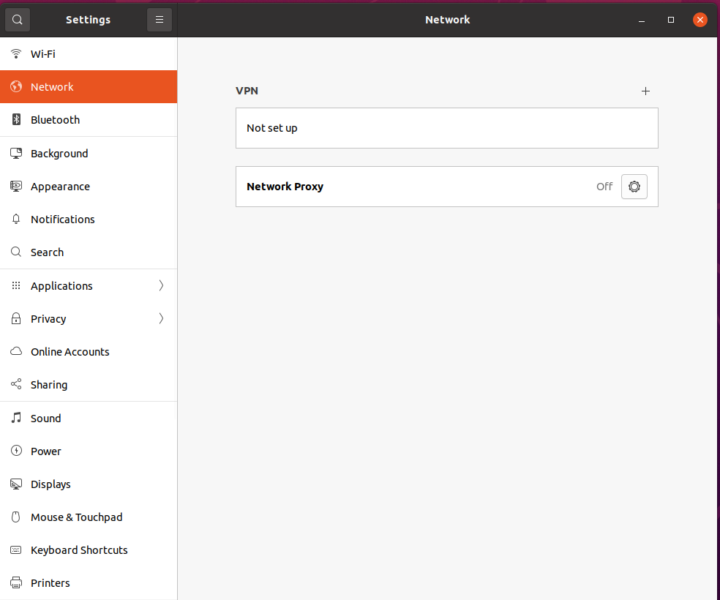
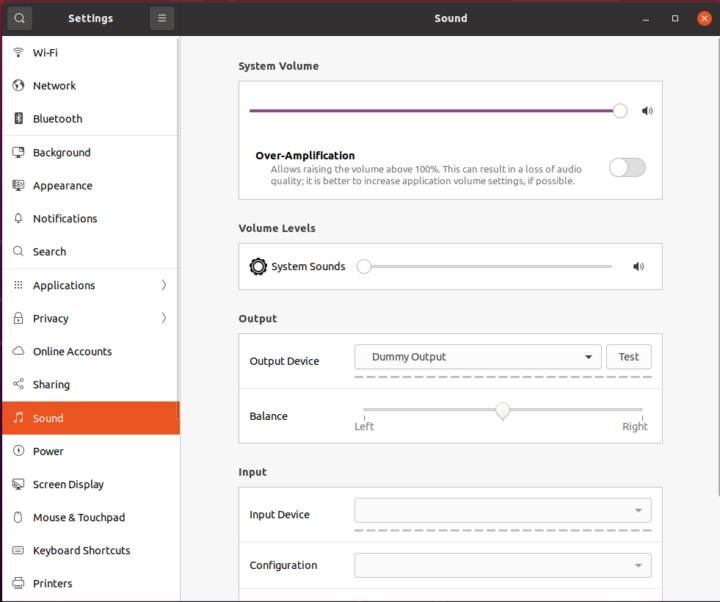
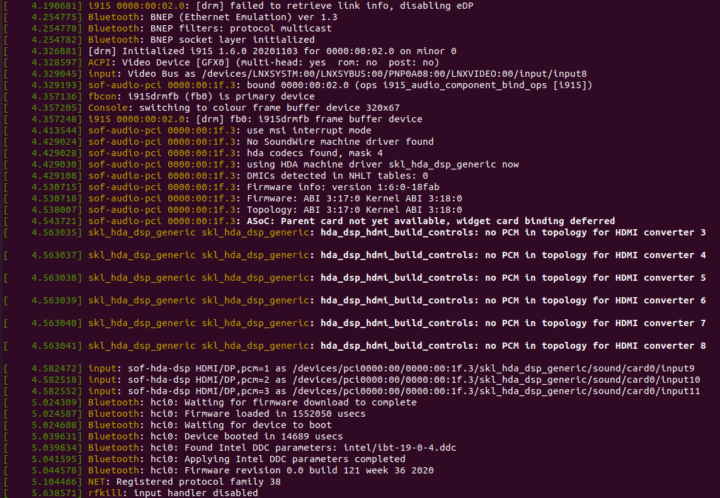
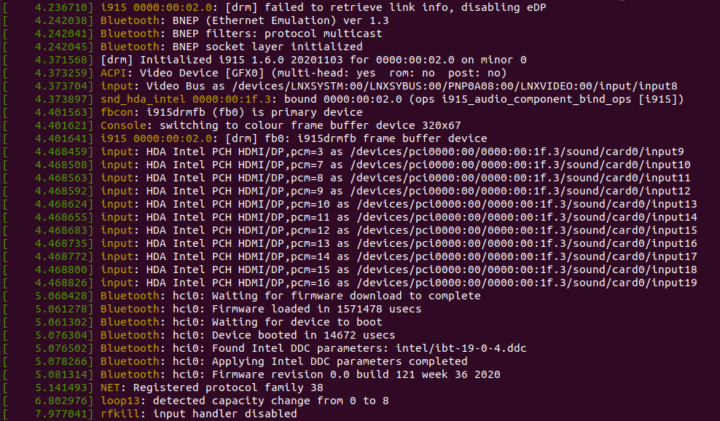
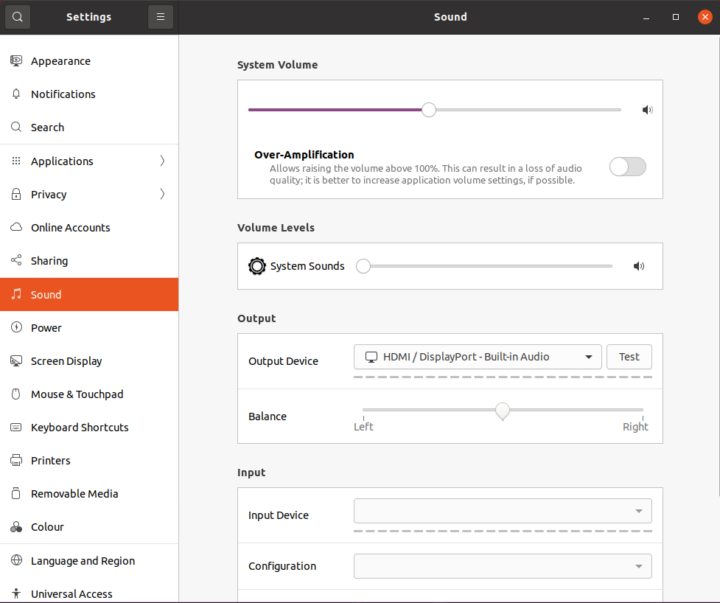
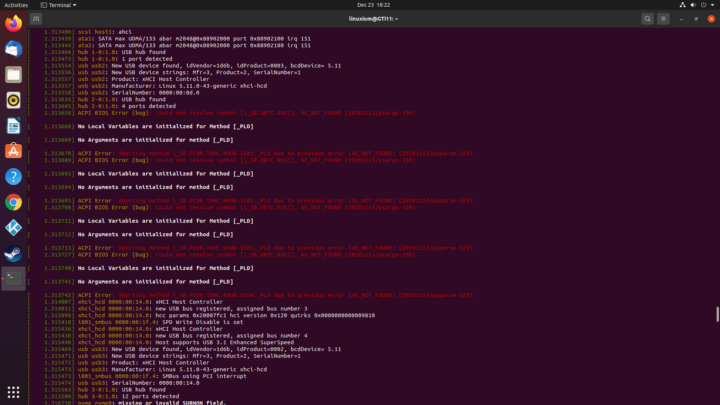
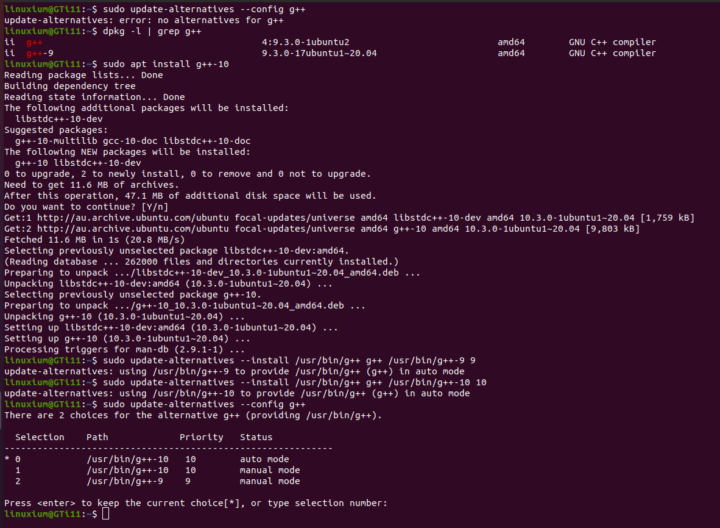
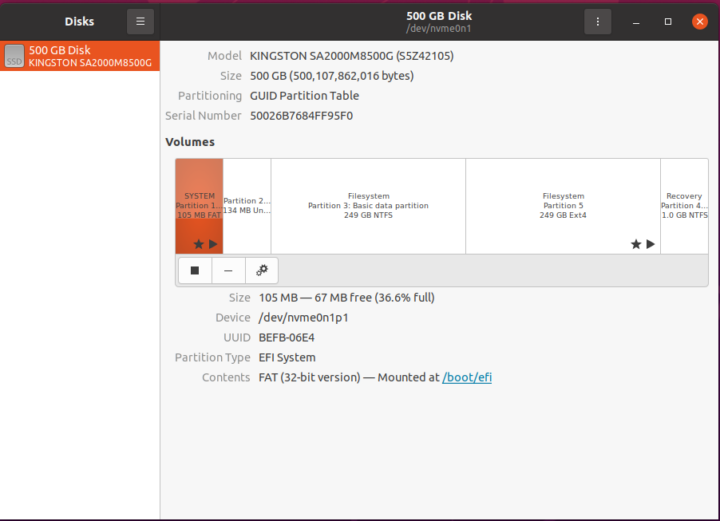
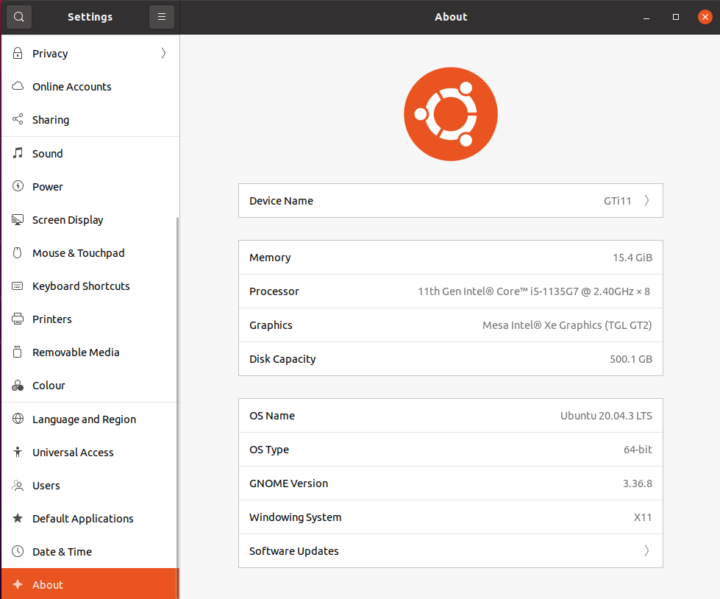
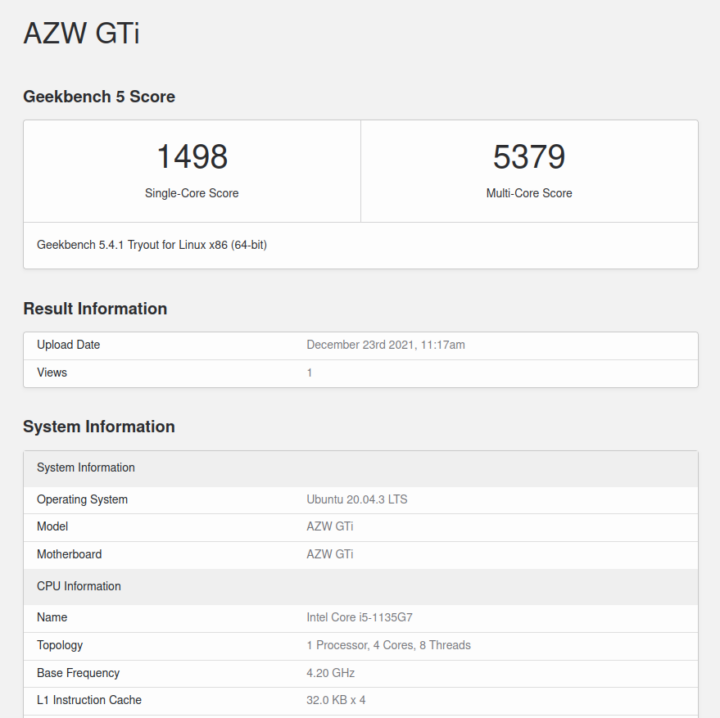
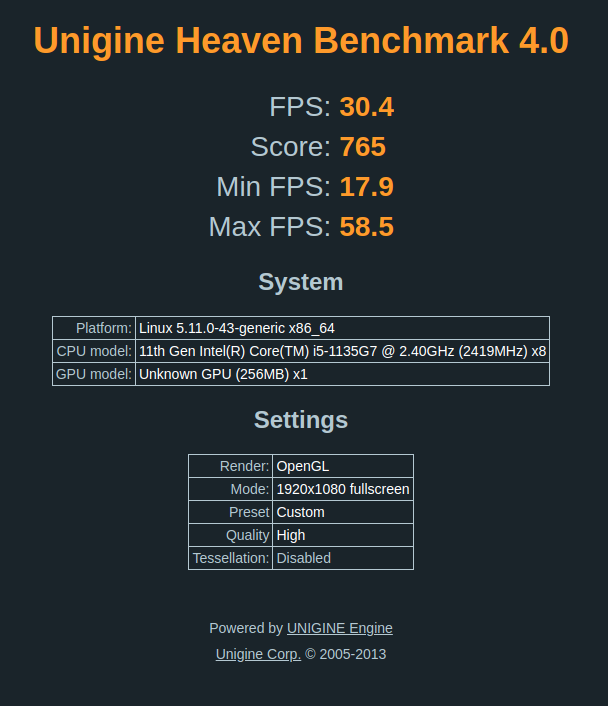
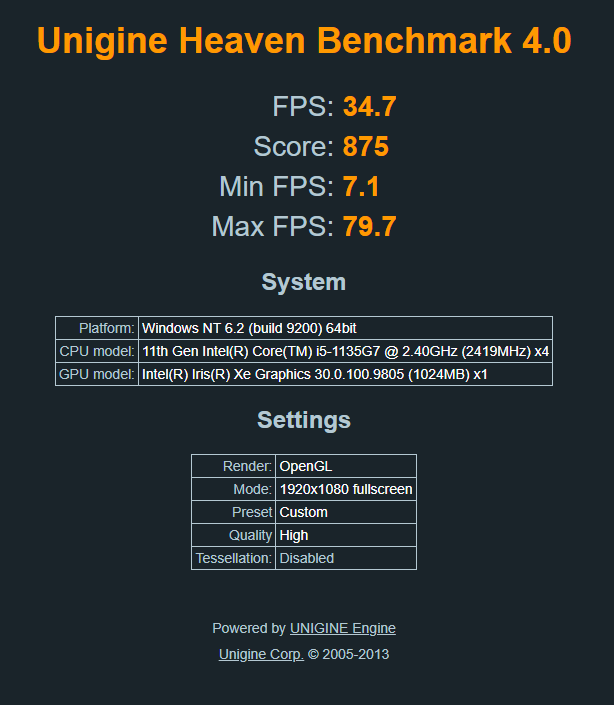
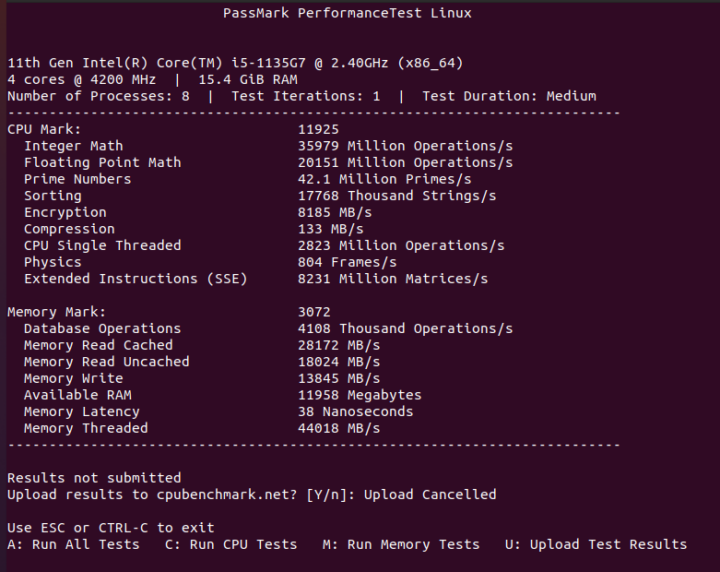
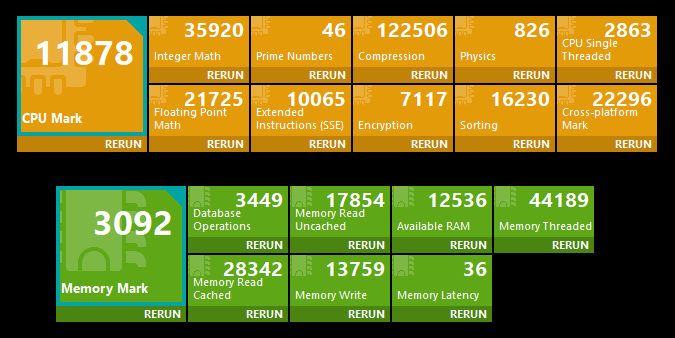
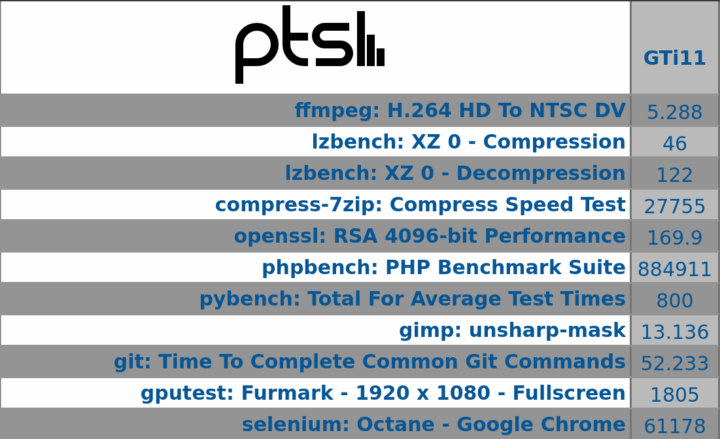
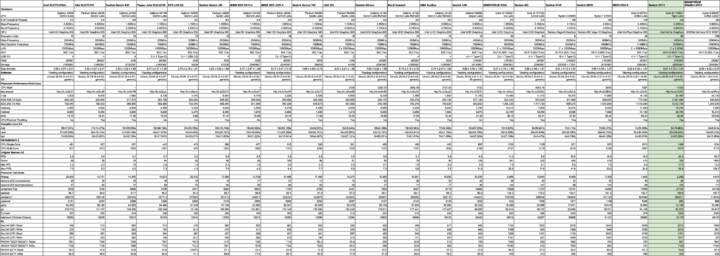
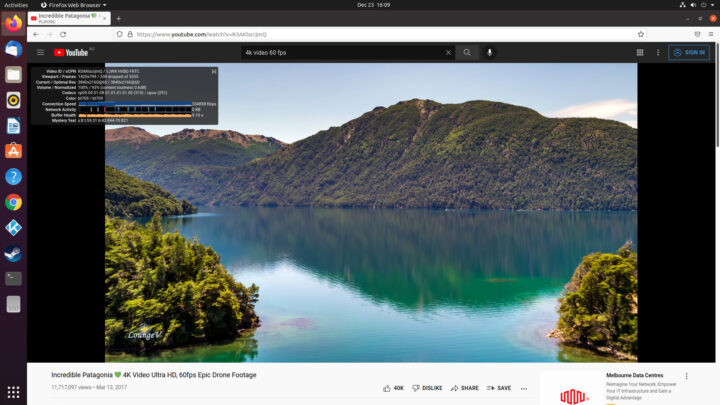
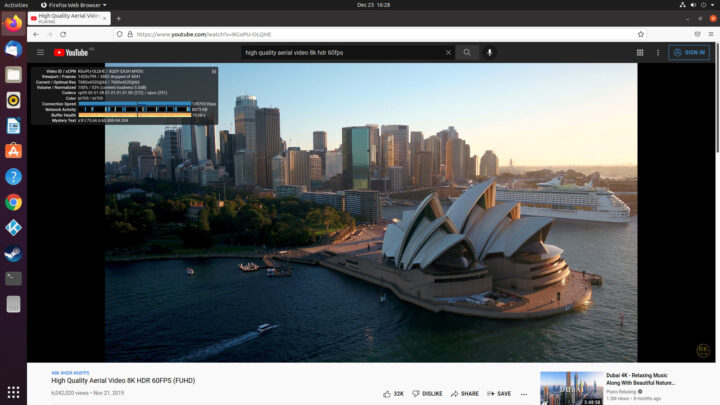
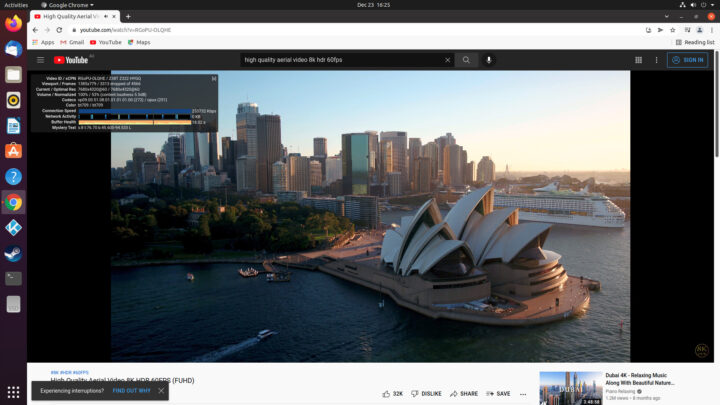
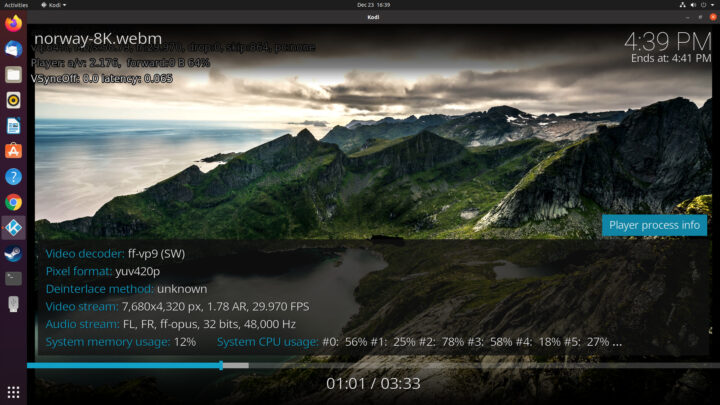
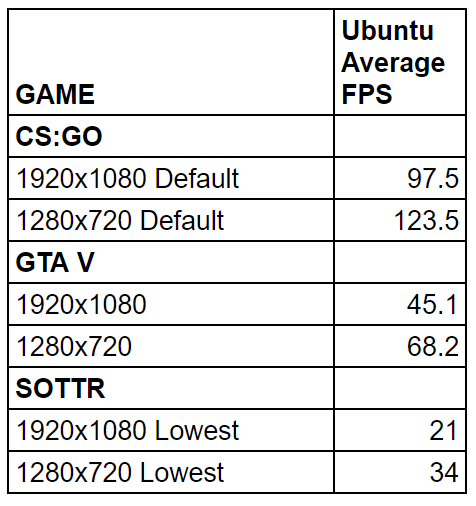
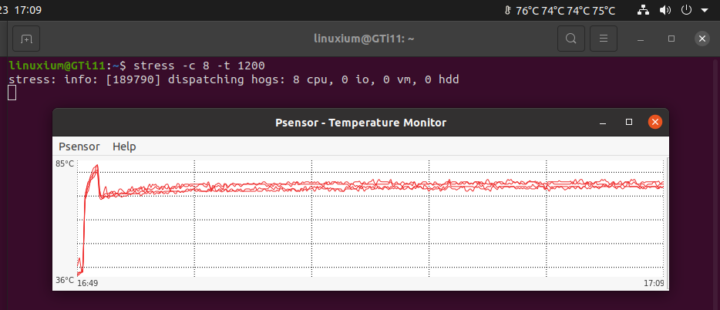
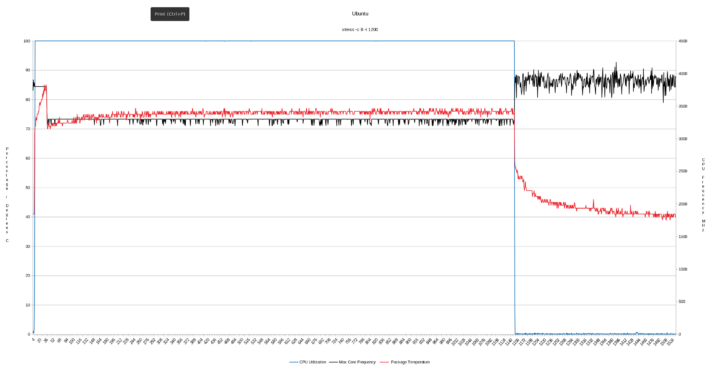

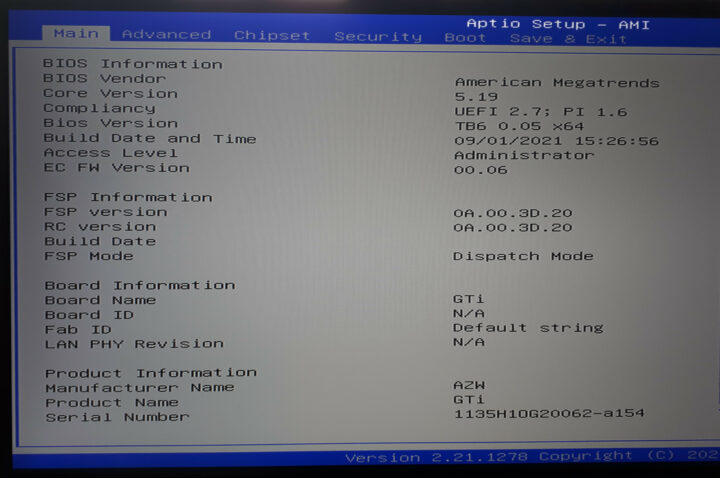
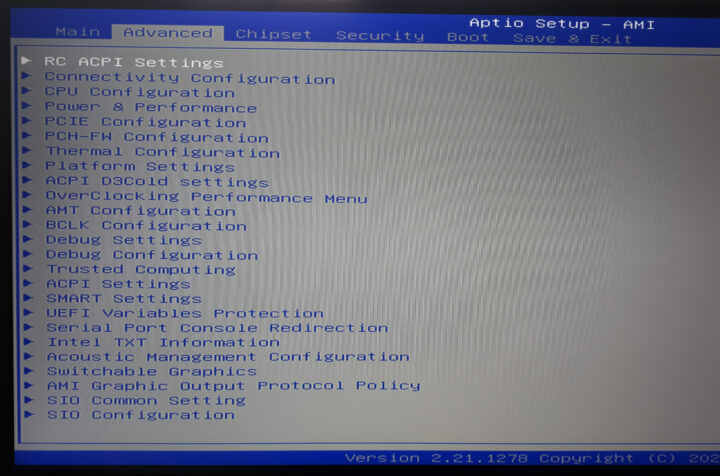
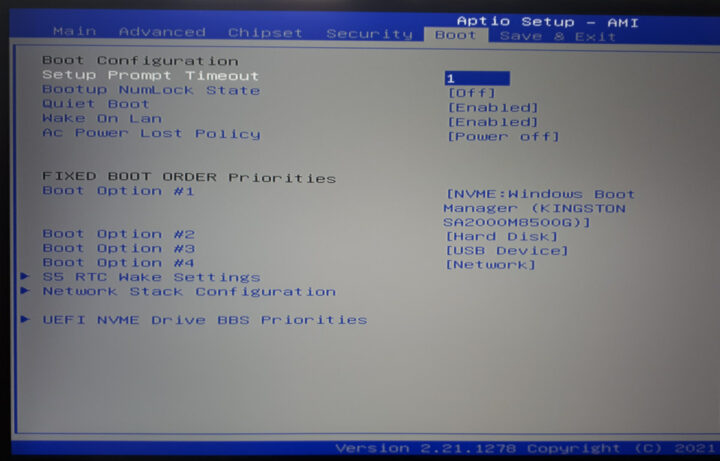



The power consumption figures indicate windows was using GPU for video hardware decode and ubuntu was using CPU for software decode.
Are there any PC desktop linux distros that actually have everything working out of the box with this hardware ?
If you have a specific distro in mind I could test it and include in part 3 of my review of this device.
Maybe try mageia, endeavour or manjaro, none of those are debian/ubuntu.
I’ve subsequently tried Manjaro however the audio issue was also present.